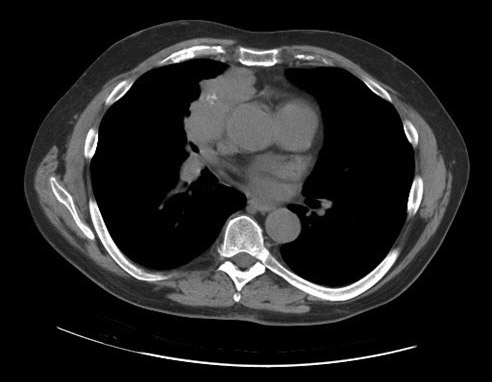Outgoing College leaders reflect on unprecedented year
As their terms come to a close this month, Jacqueline W. Fincher, MD, MACP, and Heather E. Gantzer, MD, MACP, ACP's President and Chair of the Board of Regents, respectively, talked to ACP Internist about the unique challenges and opportunities of 2020.
Last February, Jacqueline W. Fincher, MD, MACP, and Heather E. Gantzer, MD, MACP, were transitioning to their terms as ACP President and Chair of the Board of Regents (BOR), respectively. They anticipated traveling to Internal Medicine Meeting 2020 in April to network with colleagues and be officially sworn in to their roles. But COVID-19 changed everything.
Dr. Fincher and the partners in her outpatient practice in rural Thomson, Ga., immediately pivoted to telemedicine and began running a fever and respiratory clinic in a tent outside. Dr. Gantzer's outpatient practice did much the same, while at her hospital outside Minneapolis, PPE protocols and decontamination rituals dominated doctors' lives. And as ACP officers, both women worked with ACP leadership and staff to identify and rapidly meet members' new and evolving needs. As their terms come to a close this month, Drs. Fincher and Gantzer talked to ACP Internist about the unique challenges and opportunities of 2020.
Q: What was your first indication that life was about to change?
A: Dr. Gantzer: I'd been hearing for a few weeks about this thing that seemed like influenza in China. I remember waiting in the lobby of a hotel at an ACP leadership retreat and showing [ACP's EVP/CEO] Dr. [Darilyn] Moyer this photograph of this amazing construction equipment, where the Chinese government was going to build multiple field hospitals in a week, with thousands of beds. Then that same weekend, I read my email from my work in Minneapolis that somebody had traveled to China and come back with a fever and a cough, and the hospital thought maybe we should have a protocol of how we handle this. That was when it seemed like this was going to be something really different.
Dr. Fincher: I was supposed to speak at the HIMSS meeting down in Orlando. At the end of February, speakers from other places in the world started canceling, and it was like the dominoes were starting to fall. But until the public health emergency was announced by the president, I don't think it really hit me that we're not just having to change meetings; we're going to have to change practice.
Q: How did you adjust on a personal level and as part of College leadership?
A: Dr. Gantzer: There's nothing like the pandemic and other crises in the year to really make your priorities clear and focused: Keep the patients alive, keep the docs thriving, keep them physically safe, not have their practices go out of business and bankrupt, not forget the critical parts of the College, and not neglect them and do only COVID. We got our priorities straight and kind of divvied up what needed to be done. ACP staff was amazingly helpful, keeping in close communication and offering tremendous camaraderie and support to keep the human connection.
Dr. Fincher: We had to adjust our expectations of our whole year, particularly with no travel, which was very disappointing for both of us. We had to rethink how Governance could work together in a virtual space, how the Internal Medicine Meeting would be rolled back, and what could be captured out of it and pushed out virtually. We also had to rethink how the national Committees could continue to do the work of the College and communicate to members and Chapters both here and internationally. Every Chapter was also having to adapt in new ways so they could still provide that service of [a Chapter] meeting and, most importantly, the education that all the members were craving with regard to COVID and all the usual things internists handle daily. These new Zoom meetings allowed networking within the Chapters, which has been a lifesaver in terms of just getting the members together in some kind of format, whether it be a shorter webinar or a full-out Chapter meeting. There's so much honesty, encouragement, and resiliency that can occur when you know others are in the same group and same boat.
Dr. Gantzer: Originally, when we started doing town halls with groups of Governors and others, College leadership had a show to take on the road. I'd talk about this topic, and someone else would talk about that topic, and we'd tell them what the College was doing. After one or two of those, we realized that what the attendees had to say was so much more impactful. So we completely axed our show and just said, “Here we are, please tell us what you'd like to.” It was such a better experience, and so valuable. We would listen and often act on what they said. We'd get real insight. It shaped the direction of the College because we heard from the boots on the ground, different Chapters, what's going on and what they're doing well that can be shared with others.
Q: What has the pandemic shown you about internal medicine?
A: Dr. Fincher: It's been a seminal event in our generation and our lives as physicians, and truly one of medicine's finest hours. Collectively, as internists across our country, we have been the go-to people for this pandemic. Kind of like a mother, I'm just so proud of my children, my ACP colleagues, and how they've risen to this occasion. I'm just amazed at what they've been able to do. They have really stood up and been the patient advocates and the public advocates, even when the public wasn't listening.
Dr. Gantzer: It really comes to the crux of internal medicine. A hallmark is the expertise of really paying attention to underlying anatomy, pathophysiology, the evidence base, and what you do when you don't have all the evidence you wish. Internists that usually would work in one area were all of a sudden able to switch to the ICU or become leaders in a field where the field had not existed before. There's a very special part of internal medicine at the heart of it all—learning how to learn, logically and thoughtfully—that helps us pivot to do what's needed when we're faced with challenging, brand-new areas of medicine.
Q: What other challenges stood out in the past year?
A: Dr. Gantzer: I'm right here in the city of Minneapolis, and I will tell you, what happened to George Floyd, and the next few weeks, was earth-shattering. The College already had some significant policy in this area, but this too was somewhat uncharted waters. The problems were always there, but the scab got ripped off and exposed. That was a very challenging time where the College moved forward in a strong way.
Dr. Fincher: We thought, “How is this happening? And more importantly, how do we respond?” Race issues are hard to talk about, no matter who or where you are. Even among our Board of Regents, even among our Health and Public Policy Committee, these were difficult issues to talk about. We all have different perspectives, and the best way to find that right road is what we were taught in medicine: You face it head on and say, “Here's what we have. Now, what are we going to do about it?” I think the College is always that way. One thing that certainly resonates with me, and has through my career, is we can't do anything about it if we can't call it out, research it, find the evidence about it, and then make appropriate policy and decisions that are in the best interest of our patients, of our physician members, and the College itself.
Q: This is the first time women have been ACP President and BOR Chair simultaneously, as well as having Dr. Moyer as EVP/CEO. What did that mean to you?
A: Dr. Fincher: It has certainly been an unprecedented team for an unprecedented year. It is also an outward picture, to the whole membership, that all are welcome here and the doors are open to any person who wants to dedicate time and effort to the College. When we look at the demographics about who's coming out of training now in internal medicine, and almost half our members in that group are women, it's a sense of ownership. The College is ours, and we are the College. It's not just them over there; it's all of us.
Dr. Gantzer: Two women in the top leadership positions here at the same time, and Dr. Moyer as EVP/CEO, shows it's not tokenism. You're not putting one woman there to make people happy. … This being such a tumultuous year and dealing with critically important issues, I felt we had complementary skills and were not just the right women for the job, but the right people for the job. We let our work and doing the things that needed to be done speak for itself.
Q: What are your hopes for women in medicine going forward?
A: Dr. Gantzer: I have such esteem and appreciation for our colleagues that happen to be male. We have been so supported. If a woman brings up an idea, they will point out, “As Dr. Fincher said …” When people are being talked about for an award or committee, they're really careful to bring up women physicians as strong candidates. This actual tangible support makes me feel really optimistic. Everything goes better when you have different perspectives, not excluding one group or another.
Dr. Fincher: I couldn't agree more. We both came up in a time in training, in medical school, when there were much smaller numbers of women, and most of our mentors were men. It is wonderful to see so many more men, because they are surrounded by more women now, really taking that on and seeing the full spectrum of talents that every person can bring to the table.
Dr. Gantzer: It also helps patient care to have the broader perspective and not treat classes of people differently. And it helps all physicians. For many women, although it certainly can't be generalized, flexible schedules are helpful. Well, guess what? They're really helpful for male physicians too. What helps one particular person, because a bright light is shone on their need, actually helps many.
Q: What else would you tell members as you're closing out your terms?
A: Dr. Fincher: The College is truly your professional home and a lifeline to your career as an internist. ACP is also critical to the practice of medicine in this country. It provides the vehicle for our collective efforts to make a difference in the health care of patients, practices, and throughout our country and the world. Also, I would say in being physicians, we have to be willing to embrace change, learn new things, and change our minds and our perspectives. Surrounding ourselves with the camaraderie of our colleagues who have other perspectives can help us have a bigger view of practice and policy. Hearing all those perspectives broadens that understanding, and you realize how your understanding of these perspectives impacts and helps your patients and your practice, and ultimately helps all our members.
Dr. Gantzer: My parting words will be to stress the extraordinary benefit the College has had to patients and physicians over the years, but truly this year as never before. It's education, and it's advocacy, but I'll also really point out the tremendous collegiality among Governors, among members, among the Councils, among the grassroots local level, in interests of all specialties and regions. We all have a common underlying way of approaching problems. We all went through internship and residency with some commonality of experiences, and even with everything else changing, doctors and ACP all have each other's backs. There is a real risk of tremendous isolation of physicians, especially with the pandemic. The College, despite those challenges, maintains and strengthens collegiality and mutual support, and a sense of purpose in our profession, that we can help re-energize and support each other.





